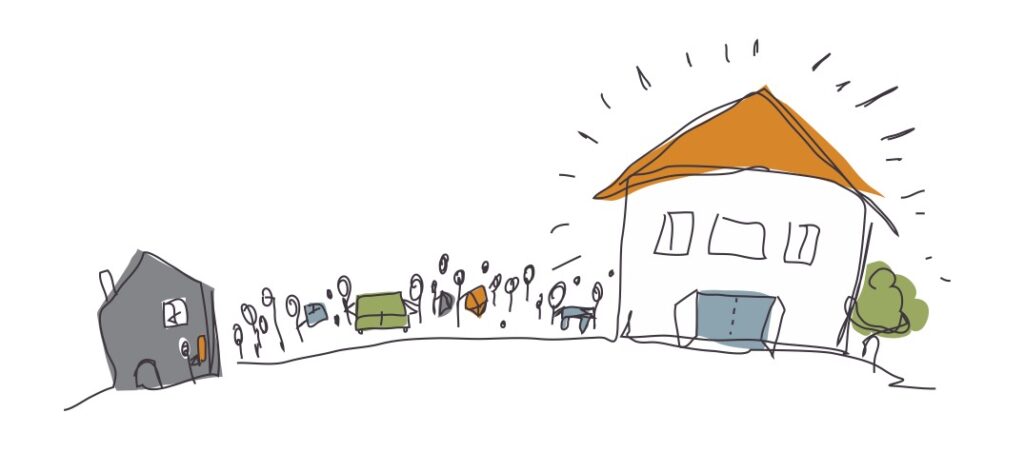Category Archives: Online Civility
Sweet and Simply Put…
This posting from a member in Hardwick just came in and warmed our hearts.
“I am so grateful for FPF for the sense of community and support; any time I post, I am overwhelmed with responses that leave me feeling cared for and with a sense of belonging.” – Lisa, Hardwick
Fixing Digital Public Spaces
Leslie Stebbins was quoted in a recent Salon article, “Our digital public spaces aren’t so healthy… Can we fix that?” (read full article here) that…
“Tech companies maintain that they cannot moderate online communities because that would jeopardize our right to free speech and because there is simply too much content flying across these networks to track. Both these issues are false flags. We now know that the core infrastructure of these platforms is intentionally designed to amplify vitriol and misinformation because this increases engagement, keeps us online longer, and provides tech companies with billions of dollars from ad revenue. It doesn’t have to be this way.“
Further, Stebbins adds, “We should focus on creating new spaces that have explicit civic goals and are designed for equity and social cohesion. Real-world communities need to be involved in intentionally designing their own local digital public spaces rather than leaving this work to global tech companies.”
Front Porch Forum gets a nice spotlight in the article…
“Front Porch Forum […] focuses on real world community building. It is the antithesis of Facebook, TikTok, and Twitter. Rather than try to keep users online, it strives to get people offline and more connected to their local Vermont neighbors. Most people spend five or ten minutes a day online to get news that their neighbors have posted: lost dogs, bake sales and announcements of upcoming school board meetings. It is funded by donations and local ads based on where someone lives, but it does not track user behavior and advertising does not drive platform design.“
“Independent research on Front Porch [Forum] shows that it builds social cohesion and is improving the resilience of local Vermont communities. Building stronger community cohesion produces many intangible benefits such as high civic engagement, more instances of neighbors helping neighbors, and lower crime rates.“
Another Shout Out to FPF in NY Times
Thanks to Jill who just posted on the Craftsbury Forum:
“I just came across this New York Times article recognizing the great job Front Porch Forum is doing with keeping Vermonters connected. I know my family and I are grateful for the network it provides.”

Talking Politics on FPF – Finding the “Shared Middle”
Cara in the Town of Halifax recently posted the following on her local Front Porch Forum when a neighbor suggested banning political speech on FPF. We love her perspective on this. Read on…
Some postings on FPF concern politics at every level – local (like the 5-person board discussion), state (Article 22) and national (names of parties). FPF *is* a place to have these discussions – there is, after all, a standard category called “election.”
The people in our small communities all share certain values – the ones that lead people who were born here to stay and that lead people who weren’t born here to make it their home.
But we don’t all share the same views, not by a long stretch. The value of FPF is that it makes it possible to find common ground and discover you like or respect people despite the fact that you may wildly disagree on issues.
That’s missing in so many parts of our lives. Let’s not strip it out of FPF, too.
I’ll recommend an episode of the podcast Revisionist History to illustrate the point. It’s hosted by Malcolm Gladwell (FN: If you don’t like him, no worries – I never did before either but it’s a terrific podcast, not glib like so much of his writing). The episode is called “When Will Met Grace” (FN: if you never liked the show, no worries – I never did either but the episode made me appreciate it). Gladwell notes that the show was hated by ultra conservatives and ultra progressives alike. But the show was on one of the four TV networks we all watched, and that resulted in it having a demonstrably moderating effect on private lives and on the national conversation.
Unfortunately, it’s so easy to avoid these days. Nowadays, people think they’re achieving that same goal by watching both Fox News and MSNBC, or reading the Wall Street Journal and the Washington Post. But consuming two extremes isn’t the same as consuming something shared in the middle.
That’s why I love FPF. It doesn’t permit anonymous posts. It’s limited to folks who have planted themselves in a small geographic area. And, most importantly, it caters to everything from lost cats to roofer recommendations to crime reports to asking for help to stack wood to, yes, politics. I like that it’s everything – because in that way, it has the capacity to have a moderating effect on all of our lives in all sorts of ways. I know for a fact that it’s helped me forge a sense of connection and community with people I wouldn’t otherwise have had an opportunity to meet or know if we all veered off into our political silos. Knowing that we have such wildly divergent views on things is important because it’s part of what makes the connection so valuable and ultimately, gives me hope.
We can only control our own conduct. If I don’t jibe with a particular person in the community or with certain views and it bothers me to see some posts? The answer isn’t to tell people to be quiet. The answer is for me to decide I don’t want to listen. But I do listen and I know from personal experience that my world is richer as a result.
I hope everyone will feel free to keep posting and keep all of these conversations going. I agree there’s no room here for hateful political or personal attacks, but just because a view is expressed that one doesn’t agree with doesn’t make it hateful.
Solving Social Media’s ‘Local Paradox’
A new article in a Stanford University journal underscores various failures of Big Tech social media, and highlights Vermont’s own Front Porch Forum as a better way.
In the bowels of social media giants, like NextDoor and Facebook, live online spaces for local social networks to take hold (e.g., a neighborhood based Facebook group).
One might think a healthy form of social connection would come from these local online networks because they’re grounded in real-world relationships and physical space — you could literally bump into that posting’s author on your way to school drop off — but in practice, as this article points out, local social media can be even more toxic than global platforms. It’s dubbed the ‘local paradox‘.
The solution to this local paradox, they say, is to build networks that are values-driven, closely moderated, trusted, and local. Further, they share Front Porch Forum as a leading example.
About Blog
Ghost of Midnight is an online journal about fostering community within neighborhoods, with a special focus on Front Porch Forum (FPF). My wife, Valerie, and I founded FPF in 2006... read more
Post Categories
- Uncategorized
- PDF2009
- Calendar
- Northeast Kingdom
- podcast
- Big Tech
- Peer Rental
- Events
- Localization
- PDF2007
- Web Traffic
- Google AdSense
- Pay It Forward
- Elections
- berkmansunlight
- Maps
- Video
- Coupons
- Wildlife
- Upstate New York
- Mobile
- Viral Marketing
- Raffle
- Crisis Response
- Donations
- Lost & Found
- Gratitude
- Real Estate
- College Students
- Social Responsibility
- Orton Family Foundation
- Start ups
- Make It Your Own Awards
- Online Civility
- Clay Shirky
- Newspapers
- How To Use FPF
- Humor
- Online Classified Ads
- Peer Reviews
- Politics
- Community Management
- Economic Development
- Local Reviews
- Case Foundation
- Borrow and Lend
- Neighborhood Watch
- Good Government
- Small Business Advertising
- Citizen Journalism
- e-Vermont
- Democracy
- Local Search
- Knight Foundation
- Burlington
- MacArthur Fellows
- Civic Engagement
- Social Media
- social capital
- Social Networking
- Vermont
- Neighborhood
- Community Building
- Local Online
- Front Porch Forum








